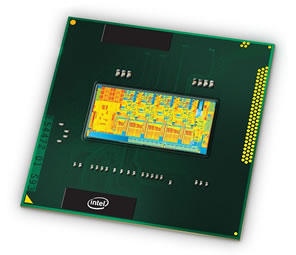A couple of weeks ago rumors started circulating that Sandy Bridge-E, the chip powering Intel's next-gen enthusiast platform, had been delayed from Q4 2011 to January 2012. Initial speculation suggested that the chip giant may be giving priority to its server CPU business and putting this relatively small high-end consumer market on hold for a quarter.
According to new information obtained by VR-Zone, however, Intel is having some issues with the new platform.
Apparently the company is trying really hard to get Sandy Bridge-E and the Waimea Bay platform onto the market before the end of this year, but it may have to downgrade the feature set to get around whatever issues it is having. Specifically, this means the X79 chipset (or platform controller hub) will have no PCI Express 3.0 storage uplink to the CPU and it will include four SATA/SAS 6Gbps ports instead of eight – it will still get four 3Gbps ports, though.
Sandy Bridge-E was meant to be Intel's first native PCI Express 3.0-enabled CPU, but due to the lack of PCI Express 3.0 hardware to test with the company has decided to postpone this. VR-Zone says Intel is looking into some kind of solution to add the aforementioned features after launch, but that would likely mean a second revision of the X79 chipset itself, not a BIOS patch, as motherboard makers are simply not going to add interfaces that are not supported at launch.
Intel has reportedly run into a snag with the CPUs as well, as it is supposedly waiting for revision C-1 (instead of the C-0 in testing now) before it begins shipping the processors out to board partners for their qualification testing.
